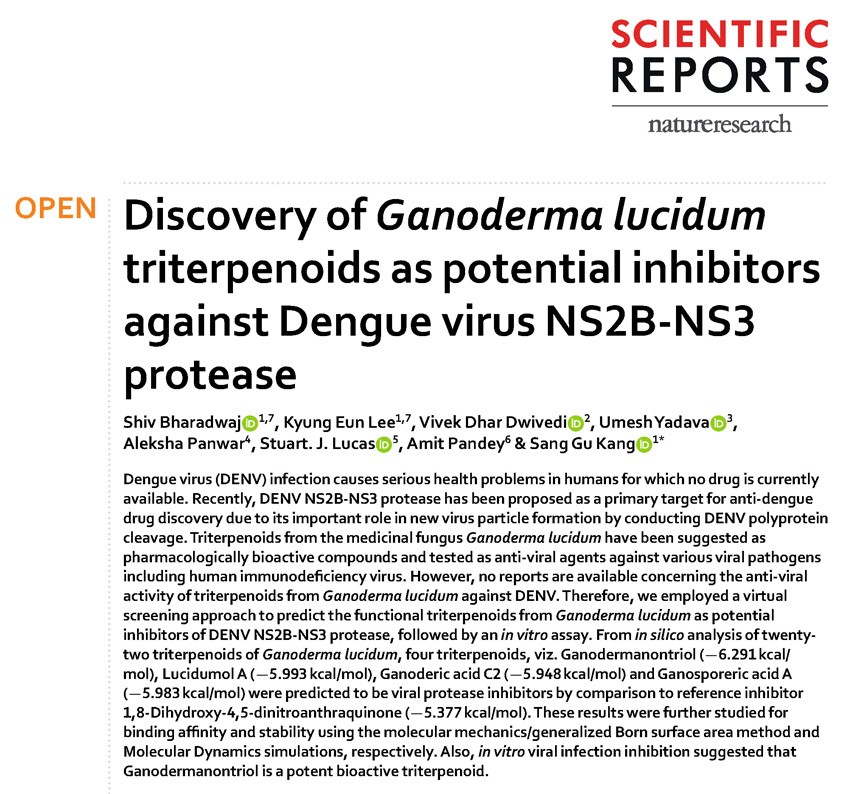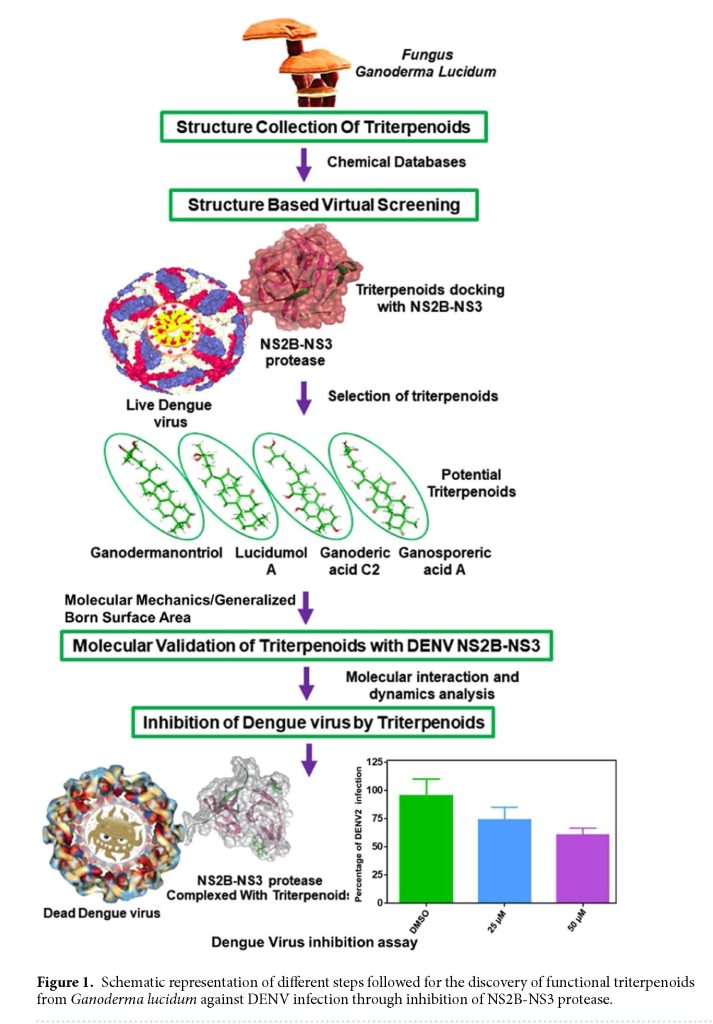December 13, 2019 / Yeungnam University, etc. / Scientific Reports
Text / Wu Tingyao

Just as the daily lives of all human beings are upset by the 2019 novel coronavirus, there are still many viruses that are incurable. Dengue fever virus that infects humans through mosquito bites is one of them.
Like all viruses, the dengue virus that infects humans through mosquito bites also uses cells to reproduce the next generation. Therefore, how to interfere with the replication process of the virus in cells has become the main countermeasure for the development of related drugs.
At present, many studies have targeted the dengue virus NS2B-NS3 protease, because it is an indispensable element for the dengue virus to complete the replication process. Without its role, the virus cannot reproduce itself to infect other cells.
According to a study published in “Scientific Reports” in December 2019, the Biotechnology Institute of Yeungnam University in South Korea and teams from India and Turkey screened 22 kinds of triterpenoids from the fruiting body of Ganoderma Lucidum and found that four of them showed potential inhibition of NS2B-NS3 protease activity.
By the use of in vitro experiments to simulate the way the virus infects cells in the body, the researchers further evaluated two kinds of Ganoderma lucidum triterpenoids :
The researchers first cultured the dengue virus type 2 (DENV-2, the type most likely to cause severe illness) with human cells for 1 hour, and then treated them with different concentrations (25 or 50 μM) of Ganoderma lucidum triterpenoids for 1 hour. After 24 hours, they analyzed the ratio of cells infected by the virus.
The results showed that ganodermanontriol can reduce the cell infection rate by approximately 25% (25μM) or 45% (50μM) while the relative ganoderic acid C2 does not have much inhibitory effect.
The results of this research provide us with another antiviral possibility of Ganoderma lucidum and also provide a new opportunity for the treatment of dengue fever, for which there is no specific drug available.

The above is a schematic diagram of the steps of screening candidate drugs to inhibit the dengue virus from Ganoderma lucidum triterpenoids with NS2B-NS3 protease as the target. The statistical chart at the bottom right shows the inhibitory rate of ganodermanontriol on cells infected with dengue fever virus type 2.
[Source] Bharadwaj S, et al. Discovery of Ganoderma lucidum triterpenoids as potential inhibitors against Dengue virus NS2B-NS3 protease. Sci Rep. 2019 Dec 13;9(1):19059. doi: 10.1038/s41598-019-55723-5.
END
About the author/ Ms. Wu Tingyao
Wu Tingyao has been reporting on first-hand Ganoderma lucidum information since 1999. She is the author of Healing with Ganoderma (published in The People’s Medical Publishing House in April 2017).
★ This article is published under the exclusive authorization of the author
★ The above works cannot be reproduced, excerpted or used in other ways without the authorization of the author
★ Violation of the above statement, the author will pursue its related legal responsibilities
★ The original text of this article was written in Chinese by Wu Tingyao and translated into English by Alfred Liu. If there is any discrepancy between the translation (English) and the original (Chinese), the original Chinese shall prevail. If readers have any questions, please contact the original author, Ms. Wu Tingyao.



